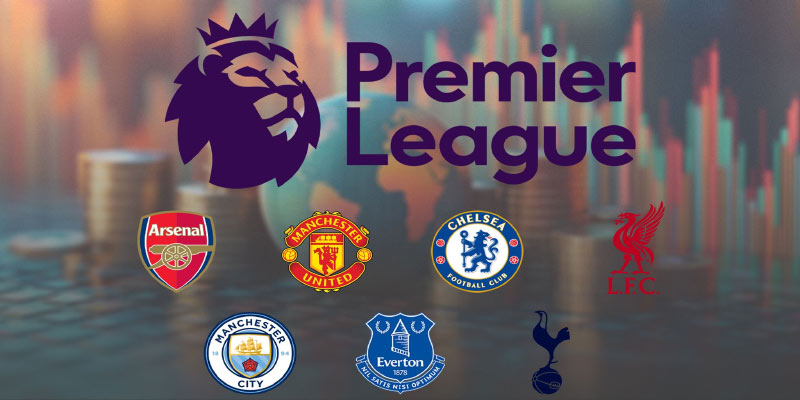
Premier League Overview: History, Top Teams & Records
The Premier League stands as one of the most prestigious and captivating football leagues in the world, capturing the attention of millions of fans globally. Known for its intense competition, remarkable players, and rich history, the Premier League not only serves as a platform for domestic talent but also as a stage for international stars to shine. As one delves into the intricacies of the Premier League, one uncovers layers of excitement and narratives that go beyond mere statistics and results.
Premier League Overview
Understanding the Premier League requires a broader outlook encompassing its origins, nuances, and global influence. Established in 1992 after a break from the Football League First Division, the league has enjoyed immense popularity. Hosting 20 teams, it usually runs from August to May each year, culminating in a gripping battle for the title, European spots, and avoiding relegation.
The Premier League is characterized by its unpredictable nature, with matches that can swing either way, emphasizing resilience and skill. Each season brings forth new talents, tactical evolutions, and fierce rivalries, making it a thrilling venture for players and fans alike.
Evolution of the League
The evolution of the Premier League is a story intertwined with significant changes in football, media, and culture.
- Formation in 1992: Before the inception of the Premier League, English football was operated under the Football League, which started in 1888. The breakthrough to form the Premier League came from top clubs that sought financial stability and greater control over their broadcasting rights.
- Commercial Success: The shift led to a substantial increase in revenue, with lucrative broadcasting deals that changed the financial landscape. Clubs were able to invest in better facilities, coaching, and player acquisitions.
- Development of Talents: Over the years, the Premier League has evolved into a breeding ground for both domestic and international talent. Young players are scouted and developed by clubs, ensuring that the league continues to attract top-tier talent.
With its evolution, the league has attracted a global audience, allowing clubs to build international fan bases, leading to tours, merchandise sales, and widespread promotion.
Unique Characteristics
Several distinct characteristics define the Premier League and contribute to its allure.
- Diversity of Teams: The league features a rich diversity of teams, from historic clubs with a storied past to newer clubs with ambitious aspirations. This diversity fosters a competitive atmosphere where any team can triumph on any given matchday.
- International Fame and Influence: The Premier League is not just a competition; it is a global brand. Many matches are broadcast in multiple languages across various countries. The league’s influence stretches beyond the UK, with players and managers from all corners of the globe taking part.
- Competitive Balance: This league is notorious for its unpredictability. Unlike other leagues where a handful of teams dominate, almost any team in the Premier League can pull off a surprise victory, adding an extra layer of excitement for fans.
History of the Premier League
The history of the Premier League is a captivating saga of ambition, progress, and triumph.
The Dawn of a New Era
The Premier League was conceived as a response to the shifting needs of English football during the early ’90s.
- The Struggle for Power: Clubs sought to distance themselves from the Football League and gain autonomy. This led to a pivotal moment where they decided to form a new league.
- New Governance: The newly formed league adopted a different governance model, allowing clubs more say in important decisions ranging from club finances to marketing strategies.
- First Season Highlights: The inaugural season in 1992-1993 saw Manchester United emerge as champions, marking the beginning of an era of dominance under Sir Alex Ferguson.
Transformation of Football
In addition to the structural changes, the Premier League brought about a transformation in the perceptions of football.
- Global Audience Expansion: The league quickly became a favorite among international audiences due to its style of play, fierce competition, and high-profile players.
- Introduction of International Players: The Premier League opened its doors to numerous international talents, significantly enriching the level of play. This move contributed to a healthy exchange of footballing ideas and techniques.
- Financial Boom: The introduction of lucrative broadcasting deals marked the start of financial prosperity for clubs, enabling them to invest in better facilities, training, and player development.
Key Milestones
Tracking the timeline and major milestones in Premier League history reveals much about its significance:
- Television Revolution: Broadcasting contracts, particularly the one with Sky Sports, dominated the landscape, marking the league’s turning point in becoming a commercial powerhouse.
- Emergence of Global Brands: Clubs like Manchester United, Arsenal, Chelsea, Liverpool, and Manchester City became global brands, leading to increased merchandise sales and international tours.
- Rise of New Contenders: While previously dominated by a few clubs, teams like Leicester City’s remarkable title win in 2015-2016 showcased that the league remains unpredictable and exciting.
The history of the Premier League reflects growth, adaptability, and the unyielding spirit of competition that continues to captivate audiences worldwide.



